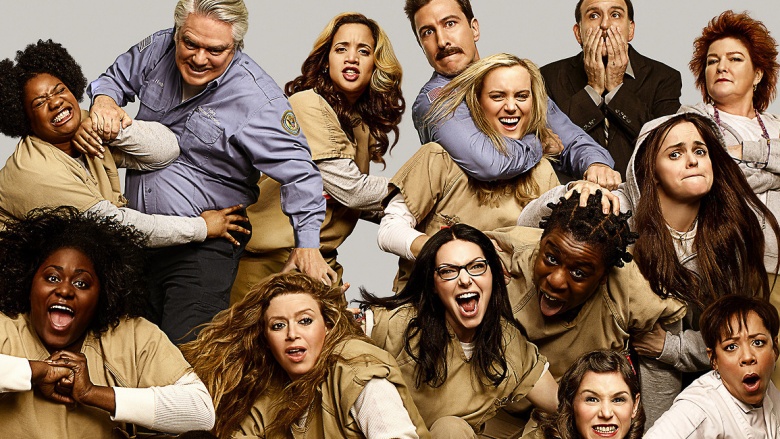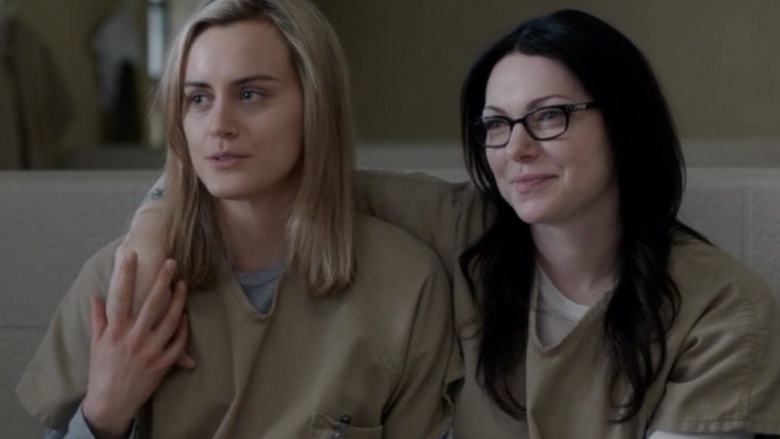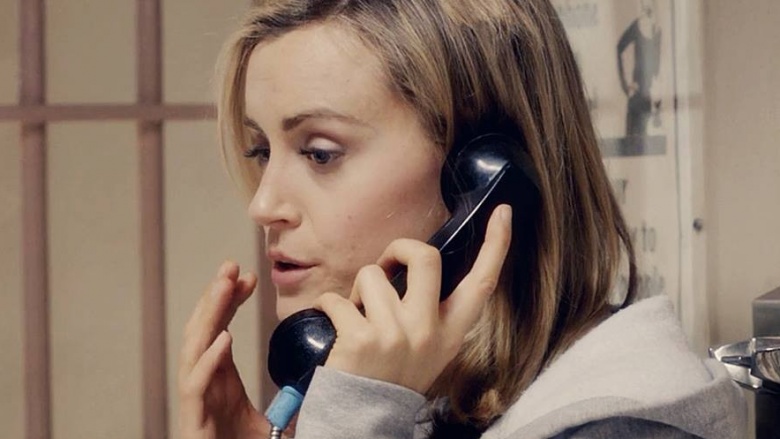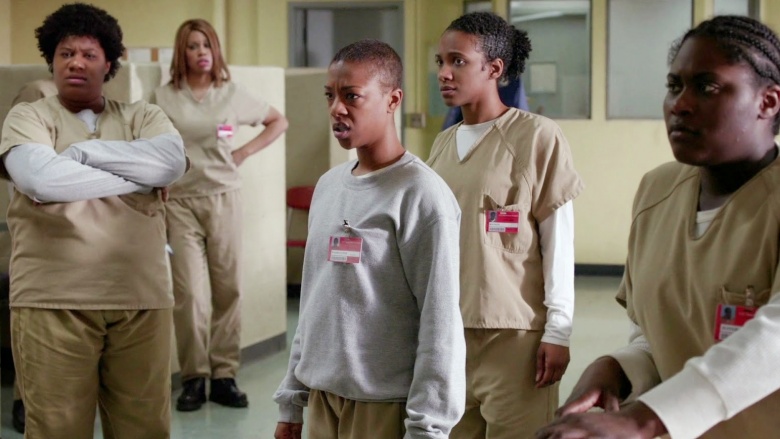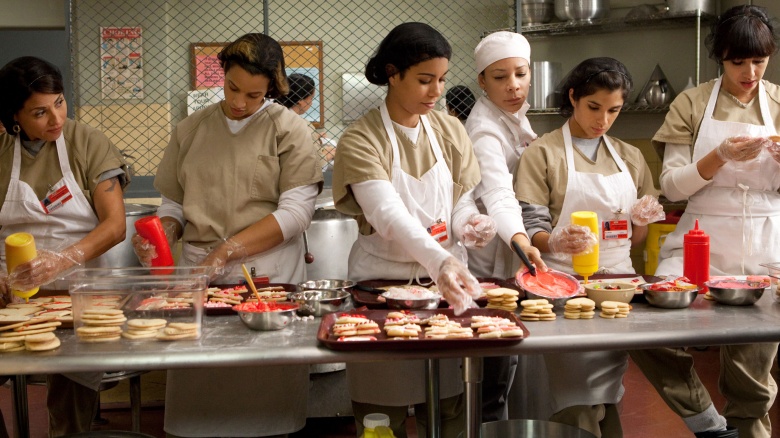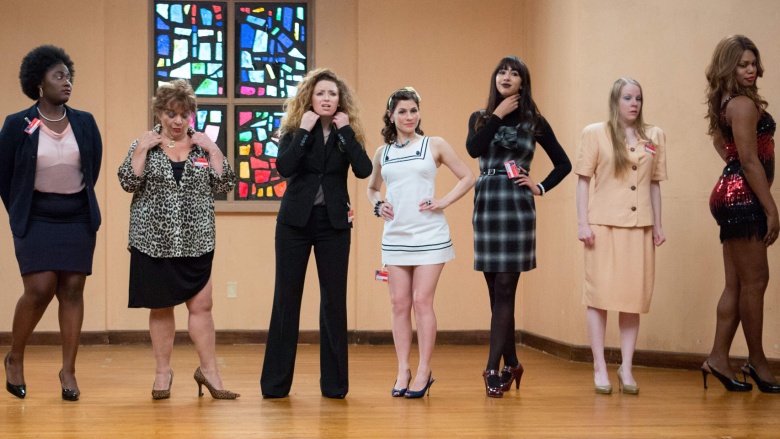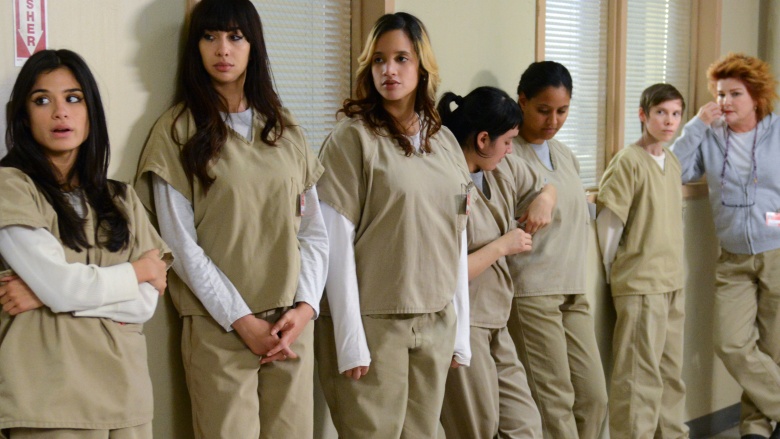What Orange Is The New Black Gets Wrong About Prison
Based on Piper Kerman's memoir about the year she spent in prison for money laundering, Orange Is The New Black is one of Netflix's most popular original shows. It's mostly a comedy, and while it doesn't claim to hold 100 percent true to the source material or to the realities women actually face while incarcerated, some of the liberties the series takes with daily prison life are hard to swallow. Here's a list of how real time in the clink measures up with Hollywood's version.
The TV-Perfected Diversity Of The Prison Population
What the show gets right is the idea that prison populations are self-segregating. In reality, this occurs through the formation of gangs, which often include violent rituals and severe penalties for associating with members outside your race. On the show, these groups seem more like slightly meaner high school cliques, each with the same number of members, which gives the feeling of a perverted Benetton advertisement casting call, instead of a nightmarish playground where you might have to stab someone to fit in.
They Have Secret Sex Spots
On the show, almost everyone has loud, cinematic sex in the prison chapel. It's generally casual sex and occurs unbeknownst to guards and other inmates. This couldn't be further from the horrifying reality that prison sex (outside of rape) is generally between partners in committed relationships and occurs anywhere and anytime it's possible. Former inmates of the Julia Tutwiler Prison for Women in Alabama said this usually means in the showers, in front of everyone, and at great risk of being harshly penalized by the guards.
They Make Frequent, Long Phone Calls
Each prison has its own phone use policy, but if they're using the pay phone system like the one depicted in Orange Is The New Black, it doesn't exactly go down the way they show it. Though the calls are extremely expensive, the inmates are often lined up to use them, each waiting for their brief allotted time. There probably wouldn't be a lot of patience for the long, dramatic, doe-eyed pauses the show's lead character takes to say what in reality would be "I'm doing fine. I love you. Sorry those two sentences just cost you fifty bucks. Bye."
The Prison Is Basically Spotless
Yes there is a scene with trained cockroaches, and yes there is an episode when the sewage backs up into the showers, but on the whole, the prison looks well maintained and freshly painted. Real inmates commonly complain about how old, broken-down, and rusty the correctional facilities generally are. Cleaning is a punitive activity, which means the inmates do it begrudgingly. Remember when you were a your parents made you clean, and you just sort of lazily swished a mop around while whining? That's how prisons get cleaned.
The Cooks Take Pride In Their Cuisine
Prison food is horrible. There are no two ways about it. The only spectrum inmates use to describe it is "mildly disgusting to inedible." Once again, as described by women from the Julia Tutwiler Prison, inmates were often served food with bugs in it, at which no one batted an eye. One kitchen worker remarked that the food came into the facility in boxes labeled, "Not fit for human consumption." This makes one of the main threads of season one completely laughable in an unintended way, when Piper alienates herself from Red (the leader of her crew and "Head Chef" of the kitchen) by insulting the food.
The Prisoners Get To Perform In Variety Shows
Put simply, in America this has only happened in secret, with the help of corrections officers who are breaking a ton of rules to facilitate it. In places like Russia, sure, they have beauty pageants for prisoners, but they also have a problem with wild dogs literally taking over certain areas of the country, which, quite frankly, sounds like a much more exciting episode pitch than Season 1: Episode 7 – The Ladies of Litchfield Perform 'Grease.'
The Medical Care Is Fit For Human Beings
In Orange is the New Black, characters' complaints of illness never go ignored to a tragic end result, and they always receive prescribed medications (particularly for mental illness). The awful reality is that correctional officers don't have any kind of comprehensive medical training. They often view an inmate's health needs as a nuisance interfering with the daily routine at best, and an excuse or diversion at worst. It wouldn't make for great comedy, but it also rings painfully untrue for people who have lost incarcerated loved ones to neglect and carelessness.

